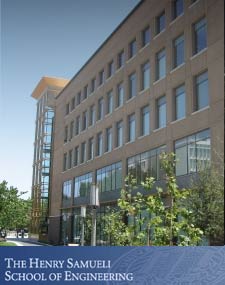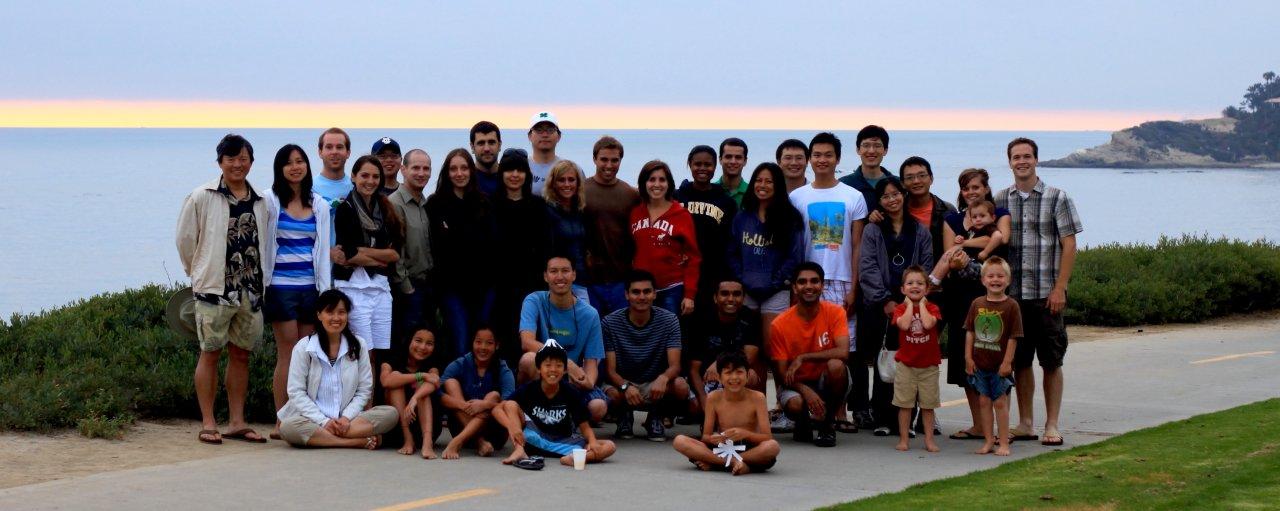 |
 |
|
|
PI: Prof. Abe Lee BioMiNT paper "Whole Blood Sorting, Enrichment and in situ Immunolabeling of Cellular Subsets using Acoustic Microstreaming" receives "Outstanding Paper Award" by Microsystems & Nanoengineering, a Nature Publishing Group journal Prof. Abe Lee featured in Rising Tide (Applied Innovation) - video BioMiNT paper makes front cover of Lab on a Chip journal Mohammad Aghaamoo of BioMiNT lab is UCI 2019 Grad Slam Top Ten Finalist! Prof. Abe Lee elected Fellow of NAI (National Academy of Inventors) NSF I/UCRC Grant for CADMIM is renewed for 5 more years! Prof. Abe Lee elected Fellow of BMES (Biomedical Engineering Society) CADMIM & DuPont Pioneer Collaboration Featured Prof. Abe Lee receives ICTS university-industry collaboration award for long-term collaboration News about our latest publication: Researchers develop process producing cell-sized lipid vesicles for cell-cell synaptic therapies Editorial by Prof. Abe Lee: "Lab on a Chip in 2017", Lab Chip, 2018, 18, 9-10 Prof. Abe Lee chairs MicroTAS 2017 in Savannah, Georgia - 9 BioMiNT papers were presented, 2 oral and 7 posters. Our paper on a "High Throughput Microfluidic Platform for Size-Selective Enrichment of Cell Populations in Tissue and Blood Samples" is featured as cover image for the journal Analyst Congratulations to Xuan Li for receiving one of the Podium Presentation Awards at the 18th Annual UC Systemwide Bioengineering Symposium, held at UCLA June 28-30, 2017 Our recent "Lego Microfluidics" paper published in JMM is featured in IOP and 3D Printing Industry Professor Abe Lee is announced as the new Lab on a Chip Editor-in-Chief also read at RSC blog 
Welcome! Thank you for visiting the Biomolecular Microsystems and Nanotransducers (BioMiNT) in the Biomedical Engineering Department, University of California at Irvine. Our focus is in developing the microscale and nanoscale platform technologies for the interrogation and manipulation of biological and physiological activities. We strongly believe the future of biotechnology and biomedicine to be driven by instruments and devices that can function at the scale of the critical biological elements. By building on the broad technological base of microsystems technologies (MEMS, microfluidics, micro-optics, biosensors, microelectronics), integration of multifunctional components and interface to the operator is established. The microscale allows devices that are either implantable or can serve as interventional tools to access essentially any part of the human anatomy minimally invasively. The development of microfluidic processors for the integration of sample collection, sample transport, sample preparation, and sample detection requires novel platforms for the sensing and actuation of a wide range of biological species. It is ultimately critical to develop on these microsystems nanoscale interfaces to biological molecules, including nucleic acids, proteins, lipids, and various small molecules. We are focusing our efforts on two main microsystem platform technologies, controlled micro/nano droplet generation and micro electrofluidic (e.g. MHD, DEP) systems. The applications of our research include the directed synthesis of drug release micro/nano particles, digital bioassays in droplets for point-of-care diagnostics, artificial cells for protein synthesis and biomolecular power harvesting, directed differentiation of neural stem cells, high throughput combinatory screening in droplets, and most recently the development of microtools for interventional neuroradiology. Regardless of whether it is the microscale or the nanoscale that we exploit, it is ultimately the meter scale (human body) that counts!! It is our sincerest hope that the technology we develop will fundamentally change the way healthcare is practiced today in terms of lower cost, greater accessibility, more individual control, broader distribution, and increased options for every walk of life.
|
|||
| |
|||
| ---
|
|
||
| Upcoming Events: | |||